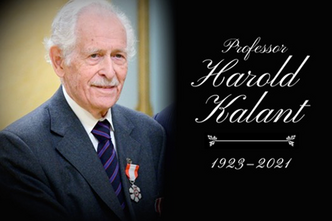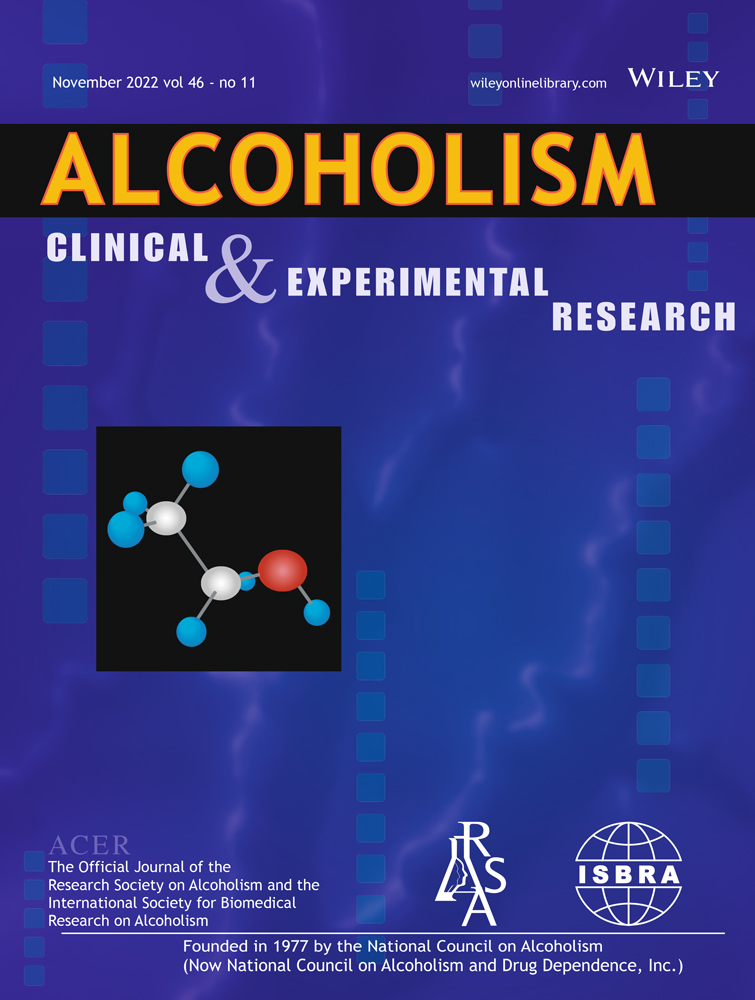A tribute to Harold Kalant: A man of tolerance

It has been more than a year since the death of Harold Kalant, one of my best friends and my mentor. Although eulogized in his home country of Canada, I want to call Harold's accomplishments and contributions to knowledge and science to the attention of the international community of alcohol and drug abuse researchers, and pharmacologists in general. Professor Kalant was an internationally known scientist who served in advisory roles for the World Health Organization, the National Institute on Alcohol Abuse and Alcoholism, and the National Institute on Drug Abuse in the United States and the British Royal College of Psychiatrists in the United Kingdom. He was also a founding member of the International Society for Biomedical Research on Alcoholism and an advisor to Health Canada and Justice Canada. Thus, a tribute published in an international journal is a fitting reminder of his many contributions.
Harold was born in 1923 in Toronto, Canada and studied medicine at the University of Toronto, graduating in 1945. During his medical education, Harold also served in the Royal Canadian Army Medical Corps for 4 years. As part of his postgraduate medical training, Harold completed a year of basic science training in Internal Medicine, which was to be his specialty. It was during this year that he met his future wife, Oriana Josseau, who was working on her Master of Science degree at the Banting Institute. They married in 1948, but because Oriana had to return to Chile to satisfy her fellowship obligation, the couple traveled to Santiago. There, Oriana completed her studies, and Harold worked as a clinical fellow. Because, for Harold to be licensed in Chile, he would have had to repeat much of the education he completed in Canada, the couple returned to Toronto. Harold's relationship with the Universidad de Chile, however, continued throughout much of his life.
On returning to Toronto, while waiting to take his medical qualifying examinations, Harold conducted research toward a Ph.D. in pathological chemistry. This decision was a turning point in Harold's career, as it steered him from clinical practice to research, and particularly research in addictions. Harold completed his Ph.D. in 1955 and after a year of postdoctoral work at Cambridge University in the U.K., returned to Toronto and in 1959 accepted a position as an Associate Professor in Pharmacology at the University of Toronto. At the same time, Harold was asked to initiate a biomedical research program in alcoholism at the Addiction Research Foundation (ARF) of Ontario, Canada. Harold was able to convince both of his future employers to work together, and after an agreement was reached, he split his time between the University of Toronto and the ARF. Harold was promoted to full Professor at the university in 1964, and Director of Biobehavioral Research at the ARF in 1979.
What is notable about the ARF and Harold's involvement with that institution is the role taken by the ARF in information dissemination to the lay public, and the legislature, regarding scientific findings on addiction, addiction treatment, and recovery. This was one of the earliest concerted attempts by a research entity (along with the Research Laboratories at ALKO, Finland), to educate the public and lawmakers of the scientific basis on which to make decisions on lifestyle, and alcohol and drug regulatory laws. The ARF also supported the publication of multiple texts and reviews of clinical trials. Among these, publications were Drugs, Society and Personal Choice written by Harold and his wife, Oriana, directed at government drug policymakers, or the review of the trials on the use of LSD in the treatment of alcoholism (Smart RG, Storm T. The efficacy of LSD in the treatment of alcoholism. Q J Stud Alcohol 25:333–8, 1964), which were circulated to thousands of U.S. and Canadian physicians. The model that ARF created presaged that used to establish the U.S. National Institute on Alcohol Abuse and Alcoholism.
Throughout his life, Harold had a large impact on medical, dental, and pharmacy education in pharmacology through the seven editions of the textbook, Principles of Medical Pharmacology of which Harold was the lead author. I have used the textbook in my own classes, testimony to my view of its excellence. However, the greatest influence of Harold's addiction research came from his scientific publications, including the review articles that he authored in the alcohol and drug abuse arena. There is no better discourse on alcohol and drug tolerance than that written in 1971 by Kalant H et al. (“Tolerance to, and dependence on, some non-opiate psychotropic drugs.” Pharmacol Rev 23:135–91, 1971). The review covers all aspects of tolerance known at that time, representing a compilation of details on all the subject matter relevant to a study of drug tolerance whether conducted in the 1970s or today. Harold never stopped adding to knowledge on the phenomena related to drug tolerance, including aspects of learning and stress on the manifestations of tolerance. I hope that all scientists embarking on investigations of alcohol or other drug tolerance will read the works of Harold Kalant as an introduction to their conceptualization and the structure of experimental protocols.
Harold received numerous awards and recognitions for his illustrious contributions to science and the field of addiction including the Jellinek Memorial Award for Research on Alcoholism (1972), the Raleigh Hills Foundation International Gold Medal (1981), the Distinguished Researcher Award of the Research Society on Alcoholism (1983), the Upjohn Award for the Pharmacological Society of Canada (1985), the Nathan B. Eddy Memorial Award from the College on Problems of Drug Dependence (1986), and the Distinguished Scientist Award of the American Society of Addiction Medicine (1995). In 2002, he was selected to deliver the NIAAA's annual Mark Keller Honorary Lecture. He was a Fellow of the Royal Society of Canada (Academy of Science), and the first honorary Fellow of the Society of the Study of Addiction in the United Kingdom. As a crowning achievement, Harold was appointed as a Member of the Order of Canada in 2013, the highest civilian honor in Canada, recognizing his extraordinary contributions to the nation.
With due respect to all of Harold's achievements, the thing that made me most proud of having him as a friend and mentor was his respect for others in all fields of endeavor. I was impressed by this during our first conversation. He listened carefully as I explained my research, he had insightful questions, and the caveats he put forth felt as good advice rather than criticism. I realized that I was not a special case in this regard, as that was Harold's approach to all. He was extremely knowledgeable in many areas and was always able to provide a novel insight into a topic. The breadth of Harold's knowledge was not limited to science. Accompanying him to a concert in Stockholm, an opera in Milan, or an art exhibition in Paris was always an educational experience and a pleasure.




